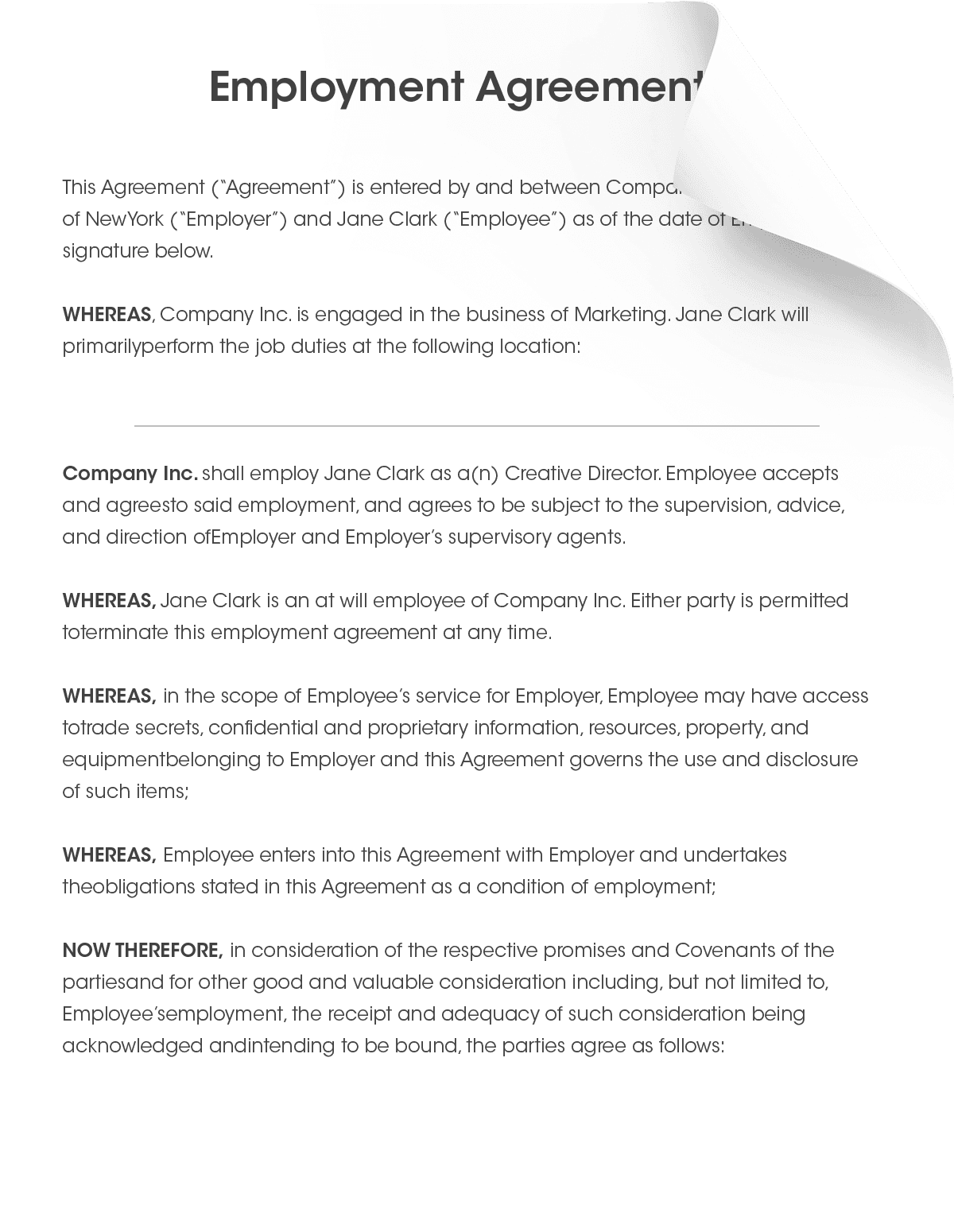What is an Employment Agreement?
Before an employee starts work with a company, the said employee may be made to sign an employment contract in order to define the terms and conditions of employment. An Employment Agreement contains the rights and obligations of both the employer and the employee in relation to their engagement of employment.
In the absence of an Employment Agreement, the presumption is that an employment is “At Will”. An “At Will” employment means that an employer can terminate an employee anytime, or that an employee can resign anytime. This can be changed in an Employment contract by signifying conditions when a party can terminate the relationship (such as justifying causes), or requiring a notice period that must be observed before an employment can be considered as terminated.
An Employment Agreement also allows the employer to specify the required working hours, and also the type of employment. Generally, employees who are required to work 30 or more hours per week are considered full time employees, and anything less would be considered as part time. The parties may also agree to a fixed-term employment (as opposed to open ended) where an employment would be considered terminated at a specific date.
An Employment Agreement can also contain a probationary period – this is essentially a trial period where an employee may be assessed for fit and competency by the employer. If the employer deems the employer unfit or not competent for the requirements of the position, then the employer will have the discretion to terminate and not regularize the employee.
Why do you need to use an Employment Agreement?
An employment agreement is a legally binding document between an employer and its new employee. It ensures both parties are on the same page as it relates to certain job duties and responsibilities. It also provides structure to your company and is an excellent practice to utilize to protect your company from any adverse action.
If any disputes arise in the course of the employer-employee relationship, an Employment Agreement is a good reference point for the parties in order to resolve the said dispute.
When do you need to use an Employment Agreement?
An employment agreement is typically executed upon the hire of a new employee. This allows the employer to define the employee’s job title and responsibilities clearly. This can help tackle any potential issues at the front end, so there is no confusion down the road.
There are different types of employment contracts based on your company’s needs — for example, a seasonal employee agreement. A seasonal employment agreement is ideal for company’s who only need temporary employees for a short amount of time. This is most common during the holidays for holiday retail. A seasonal employment agreement can also be utilized for construction services, landscaping, snow shoveling, etc.
What are the main things that go into an Employment Agreement?
An employment agreement can be very detailed depending on the company, size, job title, and necessary protections required. However, a short-form basic employment agreement is suitable for a lot of companies as a way to document the employment relationship. A basic employment agreement should include:
- Details of both the Employer and Employee
- Duties and Positional Title of the Employee
- Salary of the Employee
- Schedule and Working Hours of the Employee
- Probationary Period (if any)
- Events which may cause termination
- Restrictive Covenants (Non-Compete, Confidentiality, Non-Solicitation)
What are the most common mistakes to avoid?
One of the most common mistakes is misclassifying an independent contractor as an employee. An independent contractor agreement is different than an employment agreement. There can be some serious implications for misclassifying the type of worker you have hired.
For an employee, the company withholds taxes, whereas, for an independent contractor, the company does not withhold any taxes. An employee generally works for one company where an independent contractor can work for multiple companies.
If you decide to hire an independent contractor, we have that agreement here on Formpros.com.
Do I need to use a lawyer, accountant, or notary to help me?
You can easily create an employment agreement without hiring any lawyer, accountant, or notary. Creating the form online can save you time and money. It can also cut out the hefty expense of hiring a lawyer.
What is the easiest way to create an Employment Agreement?
An employment agreement can be completed quickly on this site. Our process is convenient, easy, and efficient. You will be able to download the form as soon as you complete the questions, and your document will be tailored to fit your needs. You can also come back at any time and make any additions or revisions you see fit.
Why use our Employment Agreement generator?
- Easy to use
- Eliminates mistakes
- 100% money-back guarantee
- 100% private & secure
- Legally binding documents





